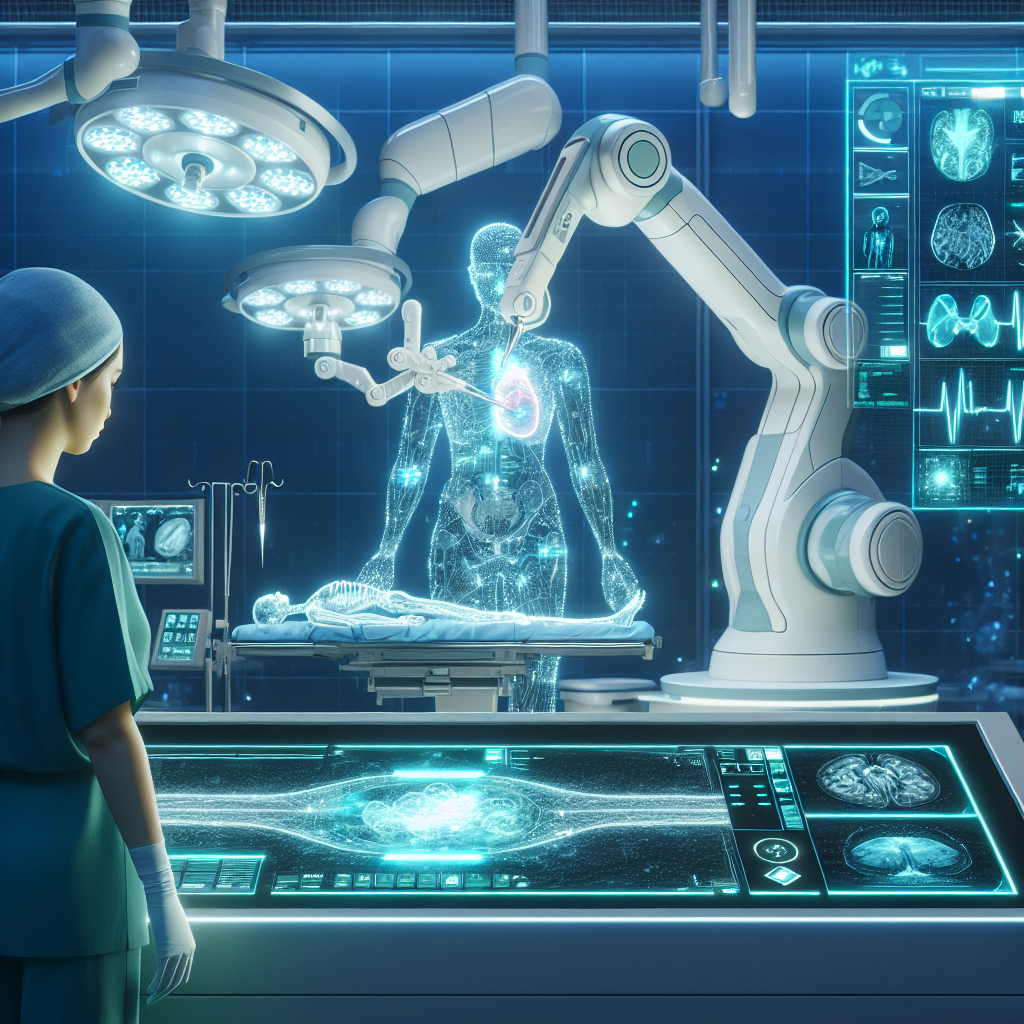[ad_1]
The integration of Artificial Intelligence (AI) into the medical field has heralded a new era in healthcare,
particularly in surgery. AI technologies are now being utilized to enhance surgical precision, improve outcomes,
and reduce complications. This article explores the revolutionary impact of AI on surgery, focusing on its current applications,
benefits, and the future it promises.
Enhanced Preoperative Planning
AI plays a crucial role in the planning phase of surgeries. By analyzing a vast amount of medical data,
such as past surgical outcomes and real-time patient health data, AI algorithms can predict the complexities
involved in upcoming surgeries. This helps surgeons devise more accurate, personalized surgical plans.
Technologies like 3D modeling and simulation software, powered by AI, allow surgeons to practice the
procedure beforehand, significantly reducing the risk of unexpected complications.
AI in Surgical Procedures
During surgery, AI enhances precision through advanced robotics and real-time data analysis.
Robotic surgical systems, such as the da Vinci Surgical System, utilize AI to assist surgeons in performing
complex procedures with enhanced dexterity and control. These robots can minimize hand tremors and
perform repetitive tasks, which is especially advantageous during lengthy surgeries.
Case Study: AI in Neurosurgery
A notable application of AI in medical surgery is in neurosurgery, where precision is paramount. AI systems
analyze neurological data in real-time to guide surgeons during critical procedures, maximizing the accuracy of tumor removal
while minimizing damage to surrounding tissues.
Postoperative Care and Predictive Analysis
AI also significantly contributes to postoperative care. By continuously monitoring patients’ vital signs,
AI technologies can quickly detect signs of complications such as infections or organ failures before they become life-threatening,
ensuring prompt medical attention. Furthermore, AI’s predictive analytics can forecast long-term recovery pathways,
helping healthcare providers manage patients’ post-surgery recovery more effectively.
“AI in surgery is not about replacing the surgeon,” explains Dr. Jane Smith, a leading robotic surgical expert, “rather,
it’s about supplementing existing capabilities to reduce human error and enhance patient safety.”
Table: AI Surgeon Assistants
| AI System | Function | Application |
|---|---|---|
| da Vinci Surgical System | Minimize tremors, enhance precision | General Surgery |
| Mazor Robotics Renaissance | Spinal alignment and implant accuracy | Orthopedic Surgery |
| Accuray’s CyberKnife | High precision radiation therapy | Cancer Treatment |
Challenges and Ethical Considerations
Despite the benefits, the use of AI in surgery presents various challenges and ethical considerations.
The dependency on data for AI systems raises concerns about privacy and data security, while the high cost
of these technologies can limit access for lower-income patients and institutions. Moreover, there is an ongoing
debate about accountability when AI-assisted surgeries go wrong—determining whether the fault lies with the technology,
the manufacturer, or the operating surgeon.
Conclusion
Artificial Intelligence is transforming surgery, offering tools that enhance the precision, safety, and effectiveness of medical operations.
As AI continues to evolve, the potential for further improving patient outcomes is immense. However, the adoption of these technologies
must also consider ethical implications, affordability, and equitable access to ensure that AI serves as a beneficial tool for all in healthcare.
FAQs
- How does AI improve surgical precision?
-
AI improves surgical precision by assisting with preoperative planning, providing guidance during procedures through robotic systems,
and offering real-time data analysis to make intraoperative decisions more accurate and safe. - Is AI intended to replace surgeons?
-
No, AI is not intended to replace surgeons but to augment their capabilities, reduce the incidence of human error, and enhance overall
surgical outcomes. - What are the main ethical concerns associated with AI in surgery?
-
The main ethical concerns include data privacy, security issues, and the accountability for when things go wrong, as well as ensuring equitable
access to this advanced technology.
[ad_2]
